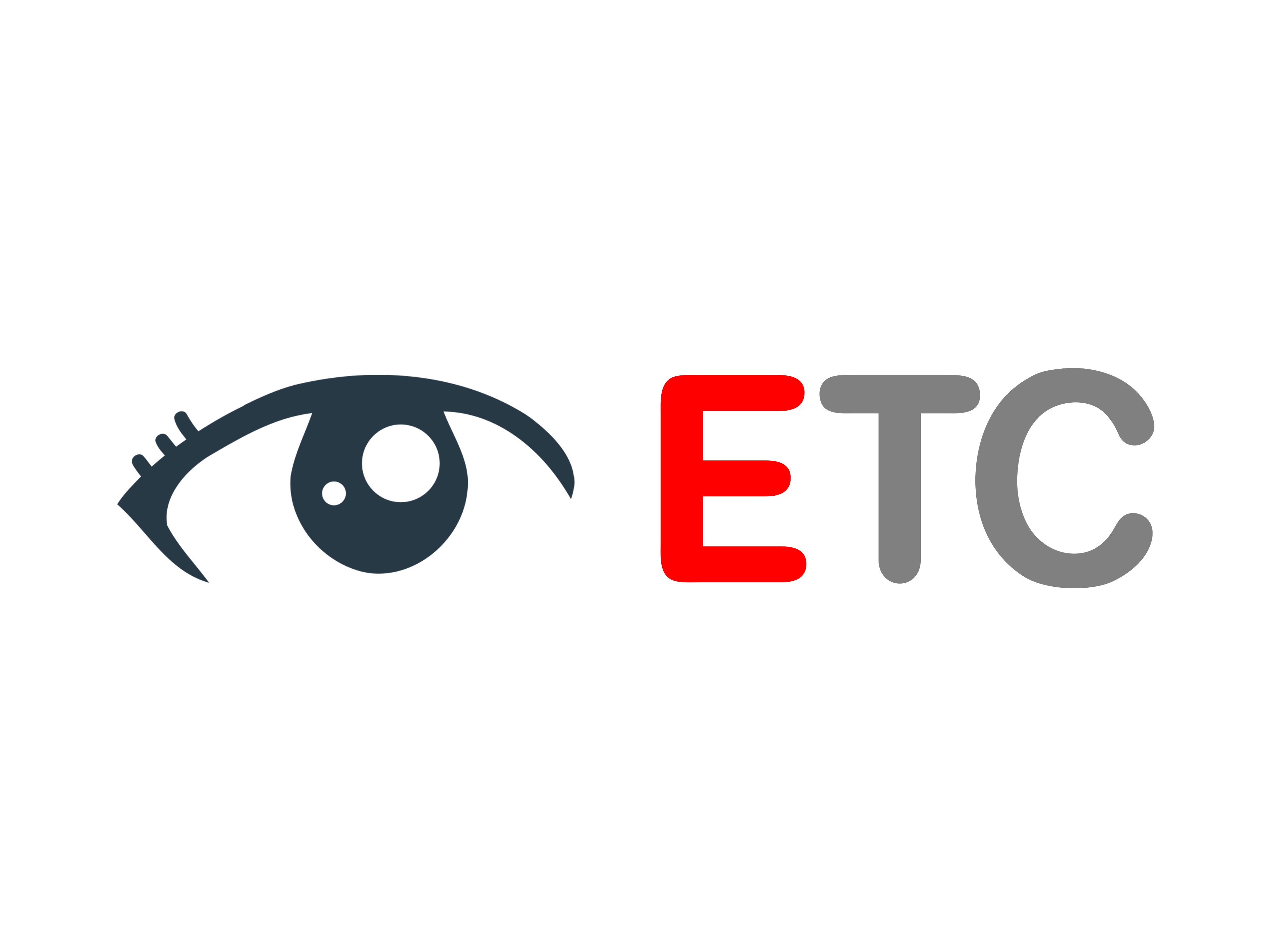Personality Type: Thoughtful Analyzer
A deliberate and analytical approach to life characterizes the “Thoughtful Analyzer” personality type. Individuals with this personality type tend to be thoughtful, logical, and detail-oriented. Here are some strengths and weaknesses associated with the Thoughtful Analyzer personality:
Core Competencies:
FIT Score: 7.6
Emotional Intelligence (EQ)
Moderate to High – Thoughtful Analyzers are good at understanding nuances but may sometimes overthink emotions, leading to analysis paralysis.
Stress Tolerance
Moderate – They can handle stress well if they have time to analyze the situation, but may struggle with sudden, unexpected stressors.
Team Compatibility
Moderate to High – They are excellent in roles that require deep analysis but may sometimes get lost in the details.
Communication Skills
Moderate – They are generally good at explaining complex ideas but may sometimes overcomplicate simple concepts.
Conflict Resolution
Moderate – They are good at analyzing the root causes of conflicts but may struggle with the emotional aspects of resolution.
Motivation
High – They are driven by a desire to understand and analyze, making them highly motivated in roles that allow for this.
Adaptability
Moderate – They are open to new information but may require time to analyze it before accepting change.
Empathy
Moderate – They are capable of empathy but may sometimes be too caught up in analysis to fully engage emotionally.
Resilience
Moderate to High – Their analytical skills help them learn from setbacks, making them relatively resilient.
Self-Regulation
High – Their analytical nature often leads to good self-discipline and control.
Optimism/Pessimism
Moderate – They tend to weigh both the positives and negatives, leading to a balanced outlook.
Work-Life Balance
Moderate – Their analytical tendencies can sometimes make it difficult to switch off from work.
Ambition
Moderate to High – They are ambitious in their quest for knowledge and understanding.
Interpersonal Skills
Moderate – While they may not be the life of the party, they are generally good at forming deep, meaningful relationships based on mutual respect and understanding.
Honesty and Integrity: 8/10
Thoughtful Analyzers are generally straightforward and honest individuals. They value data and facts, which often makes them reliable and trustworthy.
Life Balance
Strengths:
-
Analytical Thinking: Thoughtful Analyzers excel in critical and analytical thinking. They can naturally break down complex problems into manageable components and find logical solutions.
-
Attention to Detail: They are highly detail-oriented and meticulous in their work. This attention to detail often results in accurate and high-quality outcomes in tasks and projects.
-
Rational Decision-Making: They make decisions based on careful consideration of facts and evidence rather than being swayed by emotions. Their rational approach leads to well-informed choices.
-
Problem-Solving Skills: Thoughtful Analyzers are skilled problem solvers. They enjoy tackling challenges and finding innovative solutions through methodical analysis.
-
Research Abilities: They are adept at conducting research and gathering information. Their commitment to thorough research ensures they deeply understand the topics they engage with.
-
Organization: They are organized and systematic in their approach to tasks and responsibilities. This helps them manage their time effectively and meet deadlines.
-
Steady Under Pressure: Thoughtful Analyzers tend to remain composed and rational even in high-pressure situations. They can think clearly and make decisions when others might become flustered.
Weaknesses:
-
Overthinking: Their analytical nature can lead to overthinking and indecision. They may become paralyzed by the need to gather more information before making choices.
-
Difficulty with Uncertainty: Thoughtful Analyzers may struggle with uncertainty and ambiguity. They prefer clear and concrete information and may become uncomfortable with limited data.
-
Perfectionism: They may tend toward perfectionism, which can lead to excessive self-criticism and dissatisfaction with their own work.
-
Difficulty Expressing Emotions: They may find it challenging to express their emotions, leading to difficulties in personal relationships where emotional expression is important.
-
Limited Risk-Taking: Their preference for calculated decisions may lead to a reluctance to take risks, potentially missing out on opportunities for personal or professional growth.
-
Impatience with Less Analytical Approaches: They may need more patience for people who approach problems and decisions with less analytical rigor, leading to potential interpersonal conflicts.
-
Social Interaction Challenges: Thoughtful Analyzers may need help in situations requiring quick and spontaneous responses, as they prefer to analyze problems thoroughly before responding.
It’s essential to recognize that these strengths and weaknesses can vary from one individual to another within the Thoughtful Analyzer personality type. Awareness of these traits can be a valuable tool for personal and professional growth, helping individuals leverage their strengths and address areas of potential improvement.
Jobs & Action Plan
Job profiles that are well-suited for Thoughtful Analyzers
Data Analysis, Finance, Information Technology
-
Data Analyst: Thoughtful Analyzers can excel at collecting, analyzing, and interpreting data to inform decision-making processes in various industries.
-
Financial Analyst: Working with financial data, they can provide insights and recommendations for investment strategies, budgeting, and financial planning.
-
Market Researcher: They can conduct in-depth market research to identify trends, consumer behavior, and competitive insights for businesses.
-
Scientist or Researcher: Thoughtful Analyzers can engage in scientific research, making discoveries and contributing to advancements in various fields.
-
Statistician: Analyzing statistical data and designing experiments to gather information can be a fulfilling career for them.
-
Quality Control Analyst: Ensuring the quality and consistency of products or processes is a task that aligns with their attention to detail.
-
Auditor: They can assess financial records, internal controls, and compliance with regulations to identify areas for improvement.
-
Information Security Analyst: Protecting digital information and networks from security threats requires analytical thinking and problem-solving skills.
-
Technical Writer: Creating clear and concise technical documentation often calls for their ability to break down complex information.
-
Policy Analyst: Evaluating policies, regulations, and their impact on society can be an intellectually stimulating career choice.
-
Management Consultant: Thoughtful Analyzers can provide valuable insights to organizations by identifying operational inefficiencies and offering solutions.
-
Archivist: Organizing and preserving historical records and documents requires meticulous attention to detail.
-
Librarian: Curating and managing library collections and assisting patrons with research aligns with their love for knowledge.
-
Systems Analyst: Evaluating and improving computer systems and processes to enhance efficiency aligns with their problem-solving abilities.
-
Environmental Scientist: Studying environmental issues and proposing solutions to address challenges in sustainability and conservation.
-
Policy Researcher: Analyzing public policies and their effects on society can be intellectually rewarding.
-
Forensic Scientist: Applying scientific methods to solve crimes by examining physical evidence and data.
-
Healthcare Researcher: Researching to improve healthcare practices, patient outcomes, and medical technologies.
-
Academic Researcher: Engaging in research projects in various academic disciplines, contributing to advancing knowledge.
-
Process Improvement Specialist: Identifying and implementing improvements in business processes and workflows.
Thoughtful Analyzers thrive in roles that allow them to use their analytical prowess to solve complex problems, make informed decisions, and contribute to knowledge and innovation in their respective fields.
Incompatible Jobs for Thoughtful Analyzers
-
Public Relations Specialist: This role often requires quick thinking and adaptability, which may not align with the more analytical and cautious nature of Thoughtful Analyzers.
-
Sales Representative: Sales roles often involve high-pressure situations and quick decision-making, which may not suit individuals who prefer careful analysis and reflection.
-
Event Planner: Event planning can be fast-paced and require on-the-spot problem-solving, which might not align with this personality type’s thoughtful and analytical approach.
-
Customer Service Representative: Dealing with various customer inquiries and issues may be stressful for Thoughtful Analyzers who prefer structured and planned interactions.
-
Entrepreneurship (Starting a Business): Entrepreneurship often involves risk-taking and rapid decision-making, which may not align with the cautious and analytical nature of Thoughtful Analyzers.
-
Air Traffic Controller: This high-stress job requires split-second decision-making and multitasking, which may not be a good fit for individuals who prefer careful consideration.
-
Emergency Medical Technician (EMT): EMTs must make quick decisions in emergencies, which can be challenging for those who thrive in more analytical and planned environments.
Thoughtful Analyzer – Action Plan
-
Strengths: Leverage your ability to engage in neutral and analytical thinking.
-
Action Plan:
-
Utilize your analytical skills in problem-solving and decision-making.
-
Provide valuable insights in team discussions.
-
Pursue roles in data analysis, research, or consulting.
“Thoughtful Analyzer” personality type, an action plan tailored to their introspective, analytical nature can foster growth in emotional understanding, social engagement, and applied problem-solving. Here’s a structured approach:
1. Emotional Intelligence (EI) Quotient
-
Action: Introduce EI workshops focusing on recognizing and articulating emotions.
-
Purpose: To develop their ability to understand and express emotions, enhancing personal and professional relationships.
-
Outcome: Improved emotional awareness and empathy.
2. Stress Response Analysis
-
Action: Stress management techniques that incorporate analytical problem-solving, such as structured relaxation strategies and cognitive restructuring.
-
Purpose: To utilize their analytical strengths in managing stress effectively.
-
Outcome: Better stress resilience and emotional regulation.
3. Adaptability Index
-
Action: Engage in activities that require quick thinking and flexibility, like improvisation classes or strategic games.
-
Purpose: To challenge and improve their adaptability in unpredictable situations.
-
Outcome: Increased cognitive flexibility and openness to change.
4. Cognitive Styles
-
Action: Explore different cognitive styles through diverse learning methods, such as interactive workshops or collaborative projects.
-
Purpose: To broaden their problem-solving approaches beyond analytical methods.
-
Outcome: Enhanced creative thinking and problem-solving skills.
5. Interpersonal Dynamics
-
Action: Team-building exercises and group projects that emphasize diverse roles and perspectives.
-
Purpose: To cultivate appreciation for different viewpoints and enhance teamwork skills.
-
Outcome: Improved social interactions and collaborative effectiveness.
6. Values and Motivations
-
Action: Values clarification sessions to align personal and professional goals.
-
Purpose: To ensure that their analytical pursuits are deeply connected to their core values and motivations.
-
Outcome: More meaningful and motivated engagement in activities.
7. Behavioral Patterns
-
Action: Self-monitoring exercises to identify and modify any overanalytical tendencies that may hinder decision-making or action-taking.
-
Purpose: To balance their analytical nature with action-oriented behaviors.
-
Outcome: More balanced decision-making processes and proactive behaviors.
8. Communication Preferences
-
Action: Communication skills training, with an emphasis on expressing complex ideas simply and effectively.
-
Purpose: To improve their ability to communicate analytical insights in an accessible manner.
-
Outcome: Enhanced influence and understanding in both personal and professional contexts.
9. Life Satisfaction and Fulfillment Metrics
-
Action: Periodic reviews of life satisfaction metrics to identify areas for growth and enrichment.
-
Purpose: To maintain a holistic approach to life satisfaction beyond intellectual fulfillment.
-
Outcome: A well-rounded and satisfying life experience.
10. Neuroplasticity and Learning Styles
-
Action: Incorporate varied learning approaches to stimulate different areas of the brain.
-
Purpose: To encourage neuroplasticity and the development of new neural pathways.
-
Outcome: Enhanced learning capabilities and cognitive flexibility.
11. Digital Behavior Analysis
-
Action: Analyze digital consumption patterns and their impact on well-being and productivity.
-
Purpose: To optimize digital use for learning, information gathering, and social connections.
-
Outcome: Healthier digital habits and improved digital literacy.
12. Cross-Cultural Dimensions
-
Action: Participation in multicultural events and studies to appreciate diverse ways of thinking and problem-solving.
-
Purpose: To enrich their analytical perspective with a variety of cultural insights.
-
Outcome: A more globally informed and culturally sensitive analytical approach.
This action plan is designed to support the “Thoughtful Analyzer” in leveraging their analytical strengths while addressing potential areas for growth in emotional intelligence, adaptability, and interpersonal skills. Each action aims to be practical and tailored to the unique qualities of Thoughtful Analyzers, fostering both personal and professional development.
Innovation & Leadership
Innovation:
Moderate – 7/10
-
Data-Driven Insights: Thoughtful Analyzers use data-driven insights to fuel their innovations, ensuring precision and accuracy.
-
Analytical Approach: They excel in breaking down complex problems into manageable components, leading to well-structured and analytical innovations.
-
In-Depth Research: Thoughtful Analyzers are known for their meticulous research and analysis, often uncovering innovative solutions.
-
Risk Mitigation: They carefully approach innovation, thoroughly assessing risks and ensuring that their solutions are well-grounded.
-
Process Improvement: They identify opportunities for process improvement, leading to innovative strategies that optimize efficiency and effectiveness.
Leadership:
-
Precision-Oriented Leadership: Thoughtful Analyzers lead with precision, attention to detail, and a focus on accuracy, ensuring that their teams produce high-quality work.
-
Problem-Solving Mastery: They excel in guiding their teams through complex problem-solving, providing structure and analytical rigor to the process.
-
Data-Driven Decision-Making: Their leadership is marked by data-driven decision-making, which fosters trust and confidence in their teams’ choices.
-
Thoughtful Guidance: They offer thoughtful guidance and mentorship, encouraging continuous learning and growth among team members.
-
Risk Management: Thoughtful Analyzers are skilled at managing risks effectively, making them reliable leaders in high-stakes situations.
Thoughtful Analyzers Top Emotional Stages Categories:
-
Neutral Emotions
-
Aesthetic & Intellectual
-
Self-Doubt & Insecurity
Interests & Hobbies:
-
Puzzle Solving
-
Data Analysis
-
Chess
-
Reading Scientific Journals
-
Computer Programming
-
Astronomy
-
Robotics
-
Debate Clubs
-
Logical Games
-
Research Projects
Three potential best matches based on complementary traits and potential for mutual growth:
-
Thoughtful Analyzer
-
Cautious Realist
-
Aesthetic Intellectual
-
Serene Philosopher
Growth Phrases
-
“Enhance critical thinking skills for deeper analysis.”
-
“Embrace new learning opportunities to broaden knowledge.”
-
“Cultivate patience in problem-solving for more effective solutions.”
-
“Engage in collaborative projects to refine teamwork abilities.”
-
“Practice clear communication to articulate complex ideas effectively.”
-
“Seek feedback to understand different perspectives.”
-
“Develop leadership skills to guide analytical teams.”
-
“Explore innovative technologies to improve efficiency.”
-
“Implement time management strategies for productivity.”
-
“Reflect on successes and areas for improvement.”


